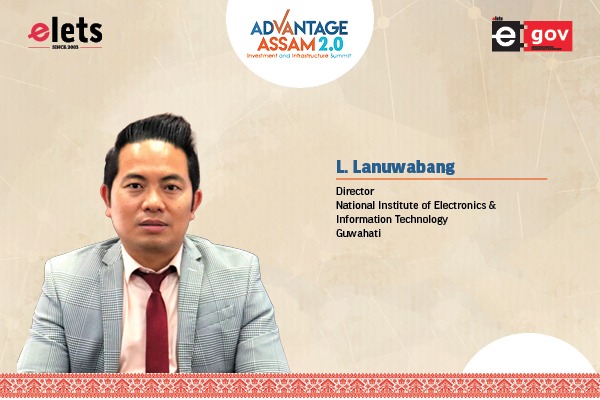
Gujarat spearheads the renewable energy movement with the world’s largest SolarWind Hybrid Park. Covering an expansive area of 726 square kilometers in the Rann of Kutch, this ambitious project, the Khavda Renewable Energy Park, accentuates India’s dedication to sustainable energy. The park’s innovative blend of solar and wind power generation exemplifies the harmonious potential of renewable sources, showcasing the government and private sector’s collaborative efforts in driving this green energy transformation.
THE KHAVDA RENEWABLE ENERGY PARK
- The Solar Wind Hybrid Park, also known as the Khavda Renewable Energy Park, is poised to revolutionise the renewable energy sector. With a substantial investment of $2.26 billion, this ambitious project is set to deliver an impressive 30 GW of combined solar and wind power capacity upon completion.
- The hybrid park will have the capacity to power approximately 18 million homes, marking a significant leap forward in sustainable energy production. Spearheaded by Gujarat Power Corporation Limited (GPCL), the project is being developed in collaboration with leading industry players, including Adani Green Energy and Sarjan Realities Limited.
- In addition to GPCL, key developers involved in this landmark initiative include Gujarat Industrial Power Company Limited (GIPCL), Gujarat State Electricity Corporation Limited (GSECL), National Thermal Power Corporation Limited (NTPC), and Solar Energy Corporation of India Limited (SECI).
Together, these organisations are driving the future of renewable energy in India.

Also Read :- Accelerating sustainable mobility solutions
COMBINED BENEFITS OF WIND AND SOLAR POWER

The park is strategically located in the Rann of Kutch, an arid region that offers ideal solar and wind power generation conditions. The geographical advantage of this region, coupled with the innovative approach of integrating solar and wind technologies, positions the park as a model for future renewable energy projects globally.
Integrating solar and wind power in a single hybrid park represents a significant technological advancement. Solar and wind power, though complementary, are often deployed separately due to their distinct operational characteristics. Solar power is most effective during sunny days, while wind power is harnessed more efficiently during windy periods, often in different seasons.
The Khavda Renewable Energy Park addresses this challenge by combining these technologies into a single ecosystem. This hybrid approach maximises energy generation throughout the year, stabilising the power output and improving the reliability of the energy supply. The integration also reduces the overall cost of electricity generation by leveraging the strengths of both solar and wind resources.
ECONOMIC AND ENVIRONMENTAL IMPACT
The Solar Wind Hybrid Park is atechnological marvel and an economic powerhouse. The project is expected to
generate significant employment opportunities during its construction and operational phases. The park is deemed to create 15,200 green jobs, ranging from construction workers to engineers and maintenance personnel. The influx of employment opportunities is expected to boost the local economy and provide a source of livelihood in surrounding areas.
From an environmental perspective, the park will play a crucial role in reducing carbon emissions. By generating 30 GW of clean energy, the park will significantly reduce reliance on fossil fuels and contribute to India’s targets under the Paris Agreement. The project aligns with India’s vision of achieving 500 GW of nonfossil fuel-based capacity by 2030 and supports the country’s broader goal of reducing greenhouse gas emissions.
Also Read :- DGVCL Pioneering Renewable Energy and Technological Innovations in Gujarat
The Khavda Renewable Energy Park has already made considerable progress. As of the latest updates, Adani Green
Energy has operationalised 1,000 MW of the park’s 30,000 MW total capacity. This milestone demonstrates the project’s commitment to timely and efficient development. The phased implementation strategy allows for the gradual integration of additional capacity, ensuring that the project can adapt to evolving technological and market conditions.
The Solar Wind Hybrid Park in Gujarat is a landmark project that exemplifies the potential of renewable energy integration. Its ambitious scale, cutting-edge technology, and significant environmental and economic benefits exemplify India’s commitment to a sustainable future. As the project progresses, it will contribute to the country’s renewable energy targets and inspire future innovations in the global energy sector.
As we move towards a greener and more sustainable future, the Khavda Renewable Energy Park will undoubtedly play a pivotal role in shaping the energy landscape, offering valuable insights and setting a high standard for renewable energy projects worldwide.
Be a part of Elets Collaborative Initiatives. Join Us for Upcoming Events and explore business opportunities. Like us on Facebook , connect with us on LinkedIn and follow us on Twitter, Instagram.
"Exciting news! Elets technomedia is now on WhatsApp Channels Subscribe today by clicking the link and stay updated with the latest insights!" Click here!













